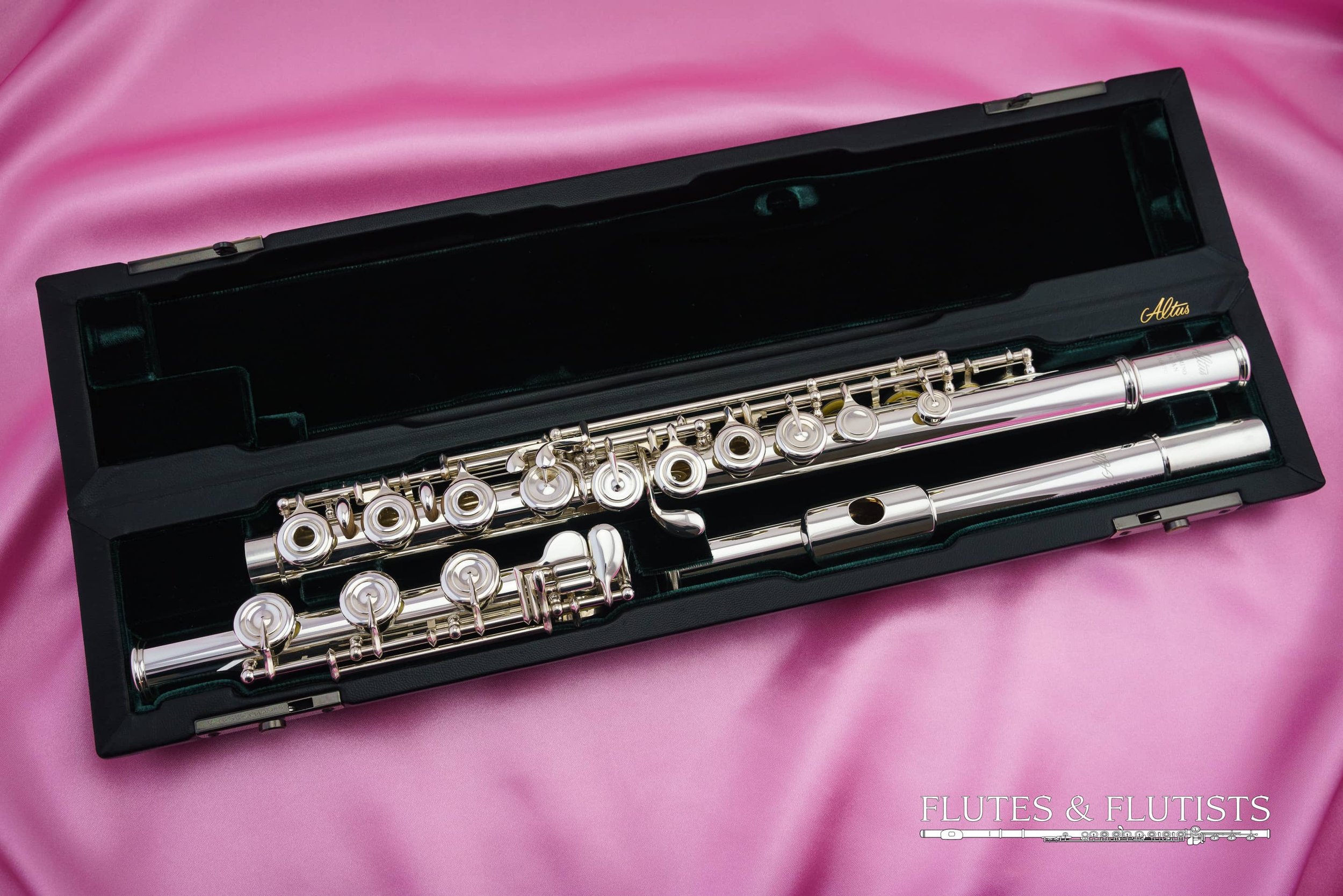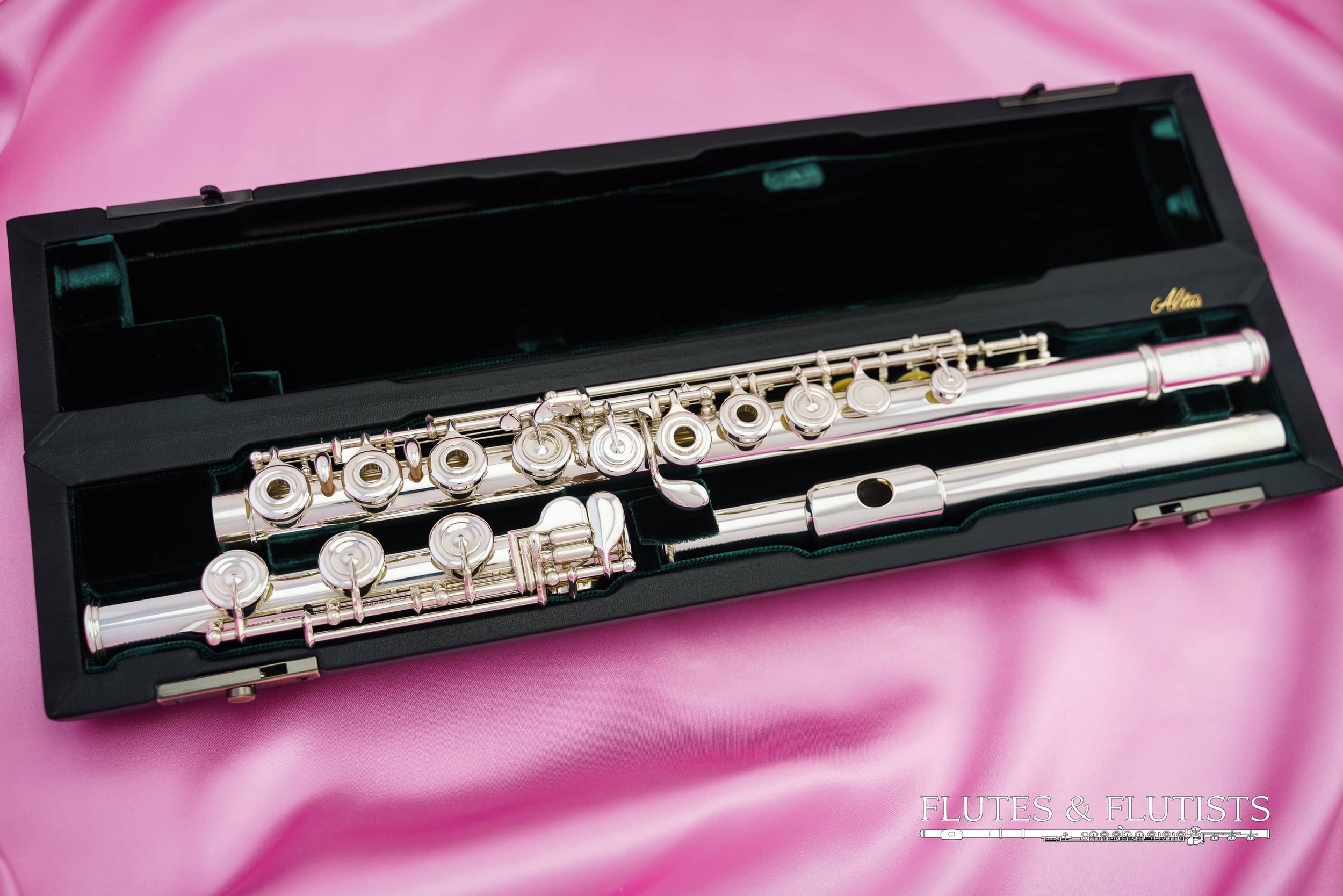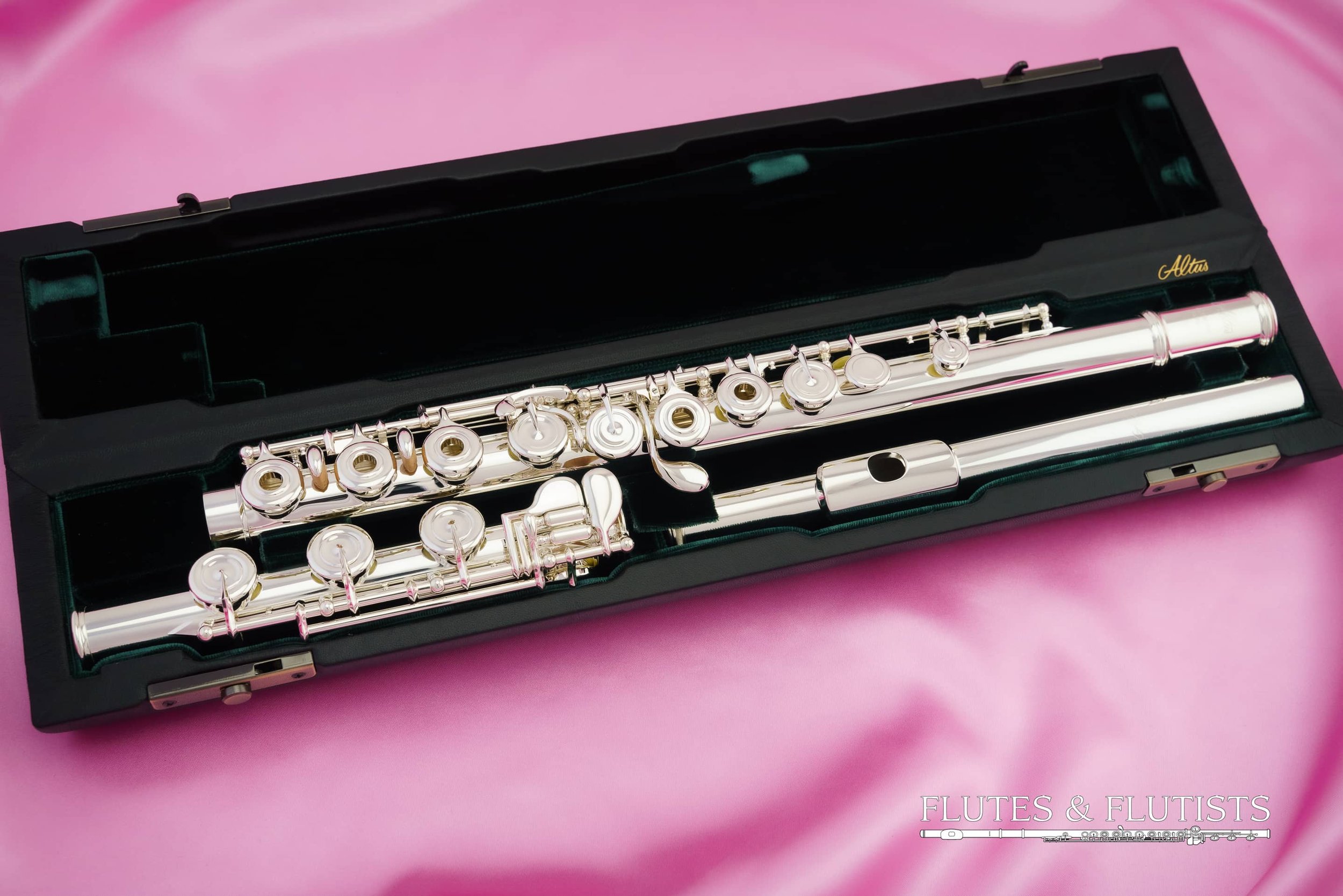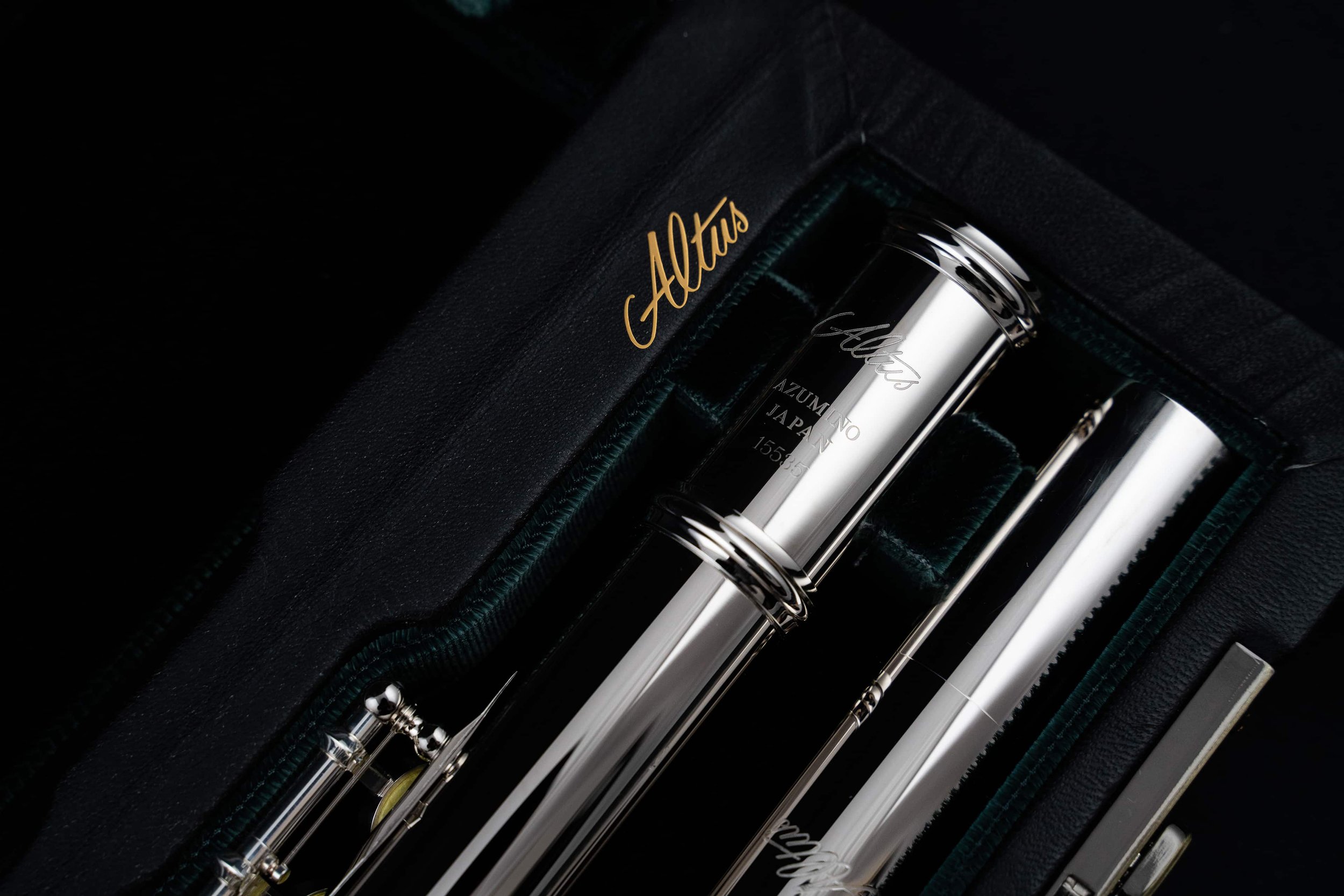
ALTUS
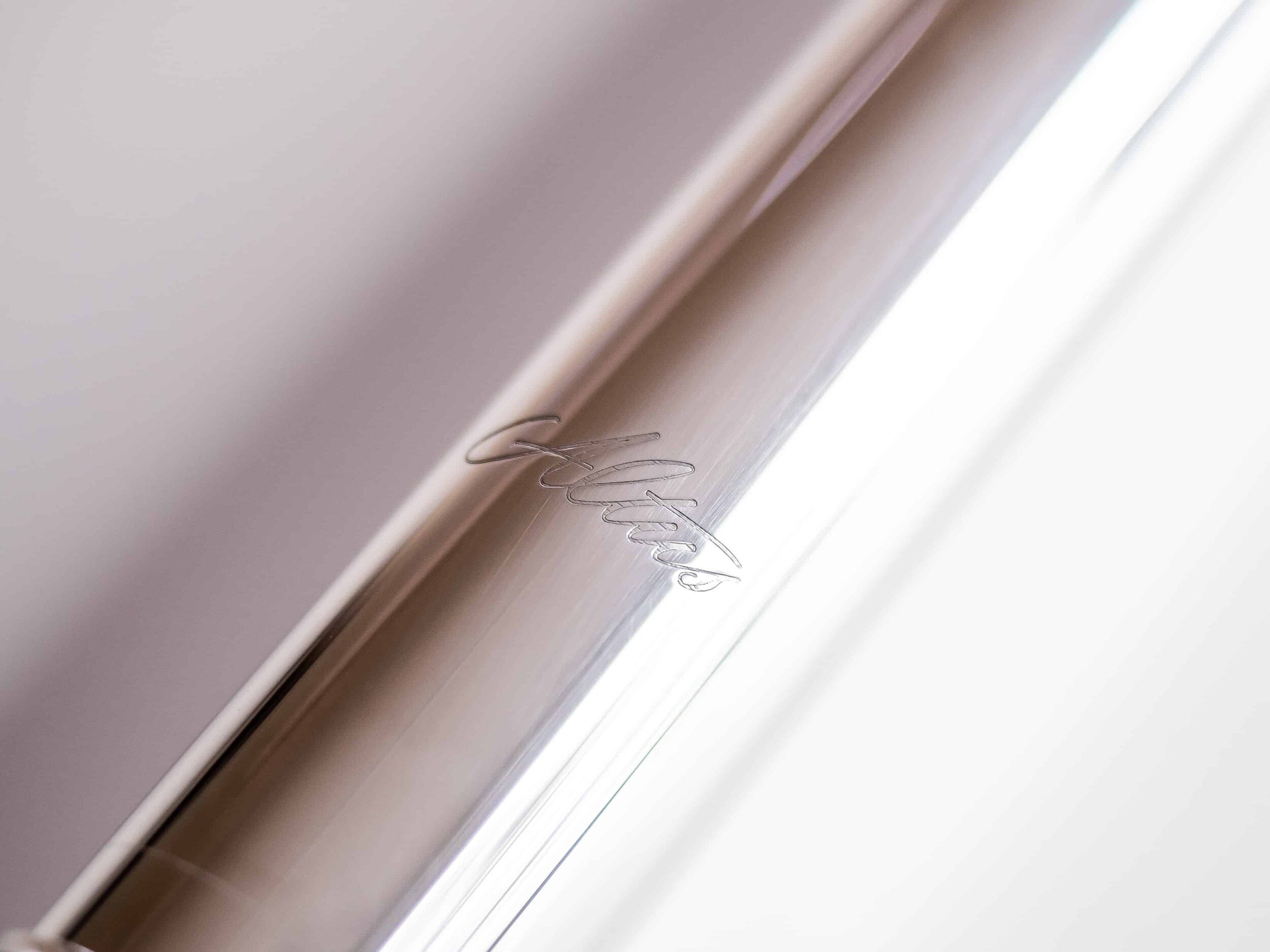
For over 30 years, the Altus factory, nestled among the serene mountains of Azumino Japan, has incorporated both ideas of classical aesthetic and modern science into their handcrafted flute designs.
An Altus flute is the product of brilliant engineering, modern metallurgy, and seasoned craftsmanship. All Altus handmade flute models are distinguished by a variety of tube materials and manufacturing techniques. Years of research and development have allowed Altus to pair the highest quality materials with a range of flute making techniques culminating in the prized collection of the world's finest flutes available today.
The founder of Altus flutes Mr. Shuichi Tanaka is a modern example of a Renaissance man. He is an artist, musician, engineer, businessman, and most notably, a master flute maker. As a teenager, Mr. Tanaka studied flute with renowned Japanese teacher and performer Toshio Takahashi.
During this time, he not only became a gifted flutist, but also a sensitive student of flute making with keen insight into the needs of flutists. Each Altus flute reflects his passion to produce the finest playing flutes available utilising the finest of materials, handwork and artistry.
The meticulous design of the Altus flute and its uncompromising scale receive great attention. Based on the work and recommendations of British flutist William Bennett, the Altus Scale offers excellent intonation, carefully tuned harmonics, and balanced registers. Altus has also developed over the years a proprietary silver alloy (Altus Silver™), inspired by vintage flutes, and innovative materials like sintered silver.
Masterfully hand-sculpted headjoints, contemporary precision standards and unique tubing all combine to produce the remarkable sound of the Altus flutes. Vintage colour, pure tonal core, ease of manipulation, excellent intonation properties, response, and projection – these are the hallmarks of the Altus sound that flutists all over the world have come to recognise.
STANDARD SERIES
Through the careful selection of materials and the Altus dedication to handmade craftsmanship, the Artist Series achieves an unparalleled balance between performance quality and affordability.
Standard Series flutes feature handmade silver-plated mechanisms well-known for their hardness, strength, and durability without sacrificing exceptional fluidity and feel. The extruded body tubes maintain a standard thickness and include drawn tones holes and the Altus-Bennett scale.
Other standard features include stainless steel springs and French-pointed keys, each flute comes in a French style leatherette covered wood case with a zippered, fleece lined cover and a shoulder strap.
LEGEND SERIES
The Altus Professional Flute is a genuine handmade instrument that is made entirely of precious metals. It is the product of brilliant engineering, modern metallurgy, and seasoned craftsmanship. All Altus Professional Flute models are distinguished by a variety of tube materials and manufacturing techniques.
Years of research and development have allowed Altus to pair the highest quality materials with a range of flute making techniques culminating in the prized collection of the world’s finest flutes available today.
Standard features include the Altus-Bennett scale, exclusive SP-1 springs, drawn or soldered tone holes and French-pointed keys. Each model comes in a rich leather covered wood frame French case with leather wrap-around cover.
ALLOYS
-

INNOVATION
For more than two decades, ALTUS has led the field in flute manufacturing with respect to the development of new silver alloys and the introduction of new and unique materials. With an ALTUS flute, every flautist has the chance to find an instrument which best corresponds with his way of playing and his musical perceptions.
The increased density of the alloys and their particular composition offer an increased range of tonal colours and optimum possibilities of musical expression. Optional wall thickness is therefore not absolutely necessary in order to achieve projection capacity and response.
-

NICKEL SILVER
Nickel silver is a material composed of copper, nickel, and zinc. This material has been used for more than 100 years for manufacturing flutes and some of the most renowned flutes were made of this material. Nickel silver has a low density but is a very resilient material and quite resistant to damage. It is relatively inexpensive but nevertheless well suited to the manufacture of flutes. This material is an excellent choice for a musician who has to keep his budget in mind.
Due to the low density of this material, nickel silver instruments feature a light and clear tone and a precise response.
-

STERLING SILVER
This alloy consists of 92.5% pure silver with a small portion of copper and other metals in order to harden the material. The specific character of sterling silver makes it an ideal metal for building flutes by both professional craftsmen and the manufacturers of student flutes. The higher density of sterling silver results in greater sound projection,
Flutes made from sterling silver have a characteristic silver sound and a great capacity of sound projection.
-

BRITANNIA SILVER
For more than 25 years, ALTUS is on the lead in the use of innovative alloys with a higher proportion of silver. This rare material with a silver share of 95.8% is distinguished from sterling silver by the fact that it contains various hardening elements.
Because of its higher density (similar to that of zinc) this material has been used for a long time for manufacturing fine cutlery. In the creation of its own 958 silver alloy, ALTUS discovered a precious metal which offers a sound quality referring back to the instruments of the early French flute makers.
This alloy offers a more powerful sound without the need for greater wall thickness. Instruments made of 958 Britannia silver offer a considerable harmonic richness and a strong resonance combined with a light and silvery tone.
-

ALTUS SILVER
As a result of Shuichi Tanaka’s intensive study of historic French flutes, ALTUS offers an extraordinary innovative material to meet the expectations of musicians who need to play with extraordinary expression and a wide spectrum of tonal differentiation. ALTUS Silver is an “impure” silver alloy. For a long time, flute makers have tried to discover the secret behind the composition of alloys used in the old French flute maker tradition (Louis Lot a. o.). With the presentation of ALTUS Silver, Mr. Tanaka has arrived at an exceptionally convincing result. The composition of ALTUS Silver remains his personal secret and can be regarded as the peak of his work to date.
Instruments made from ALTUS Silver impress with their especially intimate, silvery tone, their very distinct character and the enormous richness in different tonal colours.
Exclusive to the 1807 (AL) model.
-

ALTUS PURE SILVER
This almost pure silver alloy with a silver content of 99.7% is Shuichi Tanaka’s latest contribution to the art of flute manufacturing. This alloy is the closest to pure silver of all alloys currently found and only used for ALTUS flutes. Pure silver was long seen as being too soft to enable it to be processed into a flute suitable for playing.
But ALTUS has developed a new and special process to harden this material, which is now used not only for the manufacture of flute tubes but also for particularly heavily used mechanical parts of the instrument. The great density of 997 ALTUS Pure Silver provides a remarkable capacity of sound projection and an evenly distributed brilliant tone colour and a fiery response throughout the flute scale.
Exclusive to the PSD and 1707 (PS) model.
-

18 KARAT GOLD BONDING
Gold bonding provides added softness and darkness to the tone of a thus ideally complemented silver flute. Also, the resilience of gold may help protect a silver instrument.
The typical sound of a silver flute acquires a warm elegance when enriched with gold bonding. Gold bonding can be an affordable option to buying a golden flute.
Available on the A12 model.
-

PLATINUM BONDING
Platinum is the material with the highest density (21,5g/cm³) used for manufacturing instruments and favoured by orchestral musicians and contemporary music specialists. The bonding of platinum and silver adds brilliance and force to the characteristic sound projection of a silver flute. The sound qualities of silver offer the basis for such a concept, adding power and assertiveness as characteristics of platinum.
The sound quality of a platinum bonded silver flute is very direct and clear. A darker brilliance and excellent response characterise platinum bonded flutes.
Available on the A12 and A15 models.
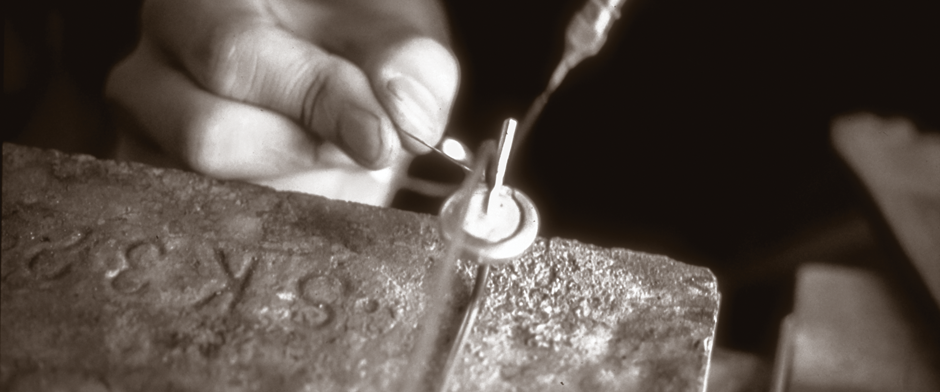
SP-1 Springs
SP-1 springs are an additional feature which distinguishes all ALTUS Professional instruments. Springs are normally made of stainless steel, but ALTUS has developed a metal alloy which shows ground-breaking new qualities. This alloy is composed of gold, platinum, palladium, silver, copper and zinc and originally developed for the telecommunications industry. The material is very valuable and is tremendously elastic.
Highly resilient springs are manufactured from this material which is almost indestructible. SP-1 springs do not rust, are not subject to wear and tear and are therefore very durable. Due to SP-1 springs the mechanism of an ALTUS Professional Flute operates in a highly precise way conveying an easy feeling, even when playing demanding and virtuosic passages.




